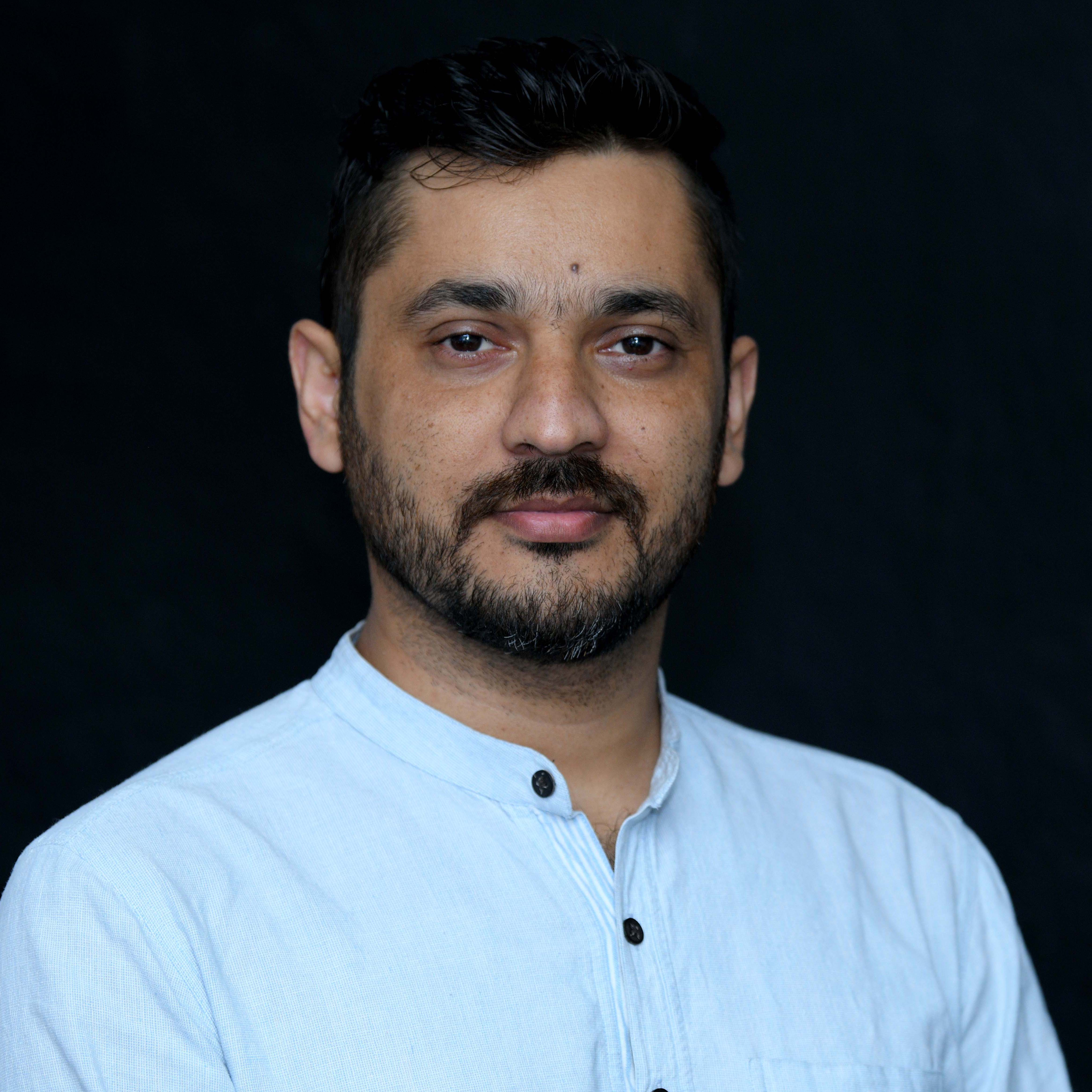Columns
At 75, spectre of Partition haunts India
The Idea of India is under erasure as democratic institutions and secular values continue to dwindle under tremendous pressure from communalist absolutism.
Dinesh Kafle
In the novel Midnight's Children, as his body slowly disintegrates into dust while being trampled by millions of Indians, Saleem Sinai, the tragic hero of Salman Rushdie’s fictionalised account of post-Independence India, prophesies that his death marks not his end but the perpetuation of the destiny of India where generations of midnight's children like him will live and die like him. Because, he says, "It is the privilege and the curse of midnight's children to be both masters and victims of their times, to forsake privacy and be sucked into the annihilating whirlpool of the multitudes, and to be unable to live or die in peace."
Intertwined destinies
Born at the stroke of the midnight hour on August 15, 1947, the moment when India gained its Independence, Saleem Sinai is born to a Hindu woman, raised by a Muslim woman and nursed by a Christian woman, and acquires British, Hindu, Muslim and Sikh fathers in his lifetime. In being a child of multiple identities and in containing in his consciousness a diversity of voices and identities, Saleem Sinai embodies ideals of inclusivity and tolerance enmeshed in the "Idea" of India. However, it is too massive a burden that Saleem alone cannot bear, due to which he falls apart and ultimately dies.
Saleem Sinai, the bearer of India’s secular, democratic future, is long dead. He would have turned 75 today had he not perished under the burden of history. At 75, Saleem's creator, Salman Rushdie, the poster child of India's literary inventiveness and cosmopolitan cultural prowess, is battling for his life in a New York hospital after being punched and stabbed.
In Midnight's Children, Rushdie shows how the gargantuan task of building an inclusive and tolerant India is fraught with problems as the hearts and minds of Indians are partitioned already and too fractured to create a seamless whole in the first place. Rushdie, whose birth and early life were shaped by that very curse, and whose later life was shattered by the murderous consequences of transnational Islamic fundamentalism, could not have been more prophetic.
In India today, having a contrarian view is akin to committing a crime. Not only is one hounded for speaking for peace, harmony and democracy, but also risks being imprisoned for things they have not even done—comedian Munawar Faruqi was incarcerated for a joke he was purportedly going to make, Siddique Kappan is languishing in jail for apparently trying to report on the gang rape and murder of a Dalit woman, Mohammad Zubair recently spent a month in jail on Kafkaesque charges of tweeting a screenshot from a Hindi film four years ago while he was actually hounded for his job as a fact checker.
The laundry list of incarcerations for speaking up in India today should stun the freedom fighters whose views were often divergent and contrarian, but who had the epistemological humility to listen and engage with each other in their common pursuit for independence. As the attack on Rushdie has shown, bigotry's effects linger on, and much like genetics, get passed on from one generation to the next. This hate gene seems to be why a 75-year-old writer who allegedly committed blasphemy against a prophet who probably lived 1,500 years ago was stabbed by an Islamic fundamentalist on the basis of a fatwa decreed 33 years ago. In India, as it is already visible every day, Muslims, Dalits, Tribals and other minorities are repeatedly thrashed and killed, and those who support these marginalised people are often put behind bars based on one draconian law or the other.
Secular aporias
As India celebrates the "Azadi ka amrit mahotsav" to mark the 75th year of Independence, Hindutva zealots are roaming the streets keeping note of "anti-national" homes that have failed to hoist the national flag. Being an Indian has come down to purchasing a 20-rupee disposable flag, often sold by ruling party leaders and their cronies, or the poor citizens won't get a free ration. Meanwhile, Narendra Damodardas Modi, prime minister of India and humanoid deity of Hindutva nationalism, maintains a deafening silence on the dastardly attack on the Indian-born writer who not only brought home the first Booker Prize but also put India on the global literary map like no other writer before. He won't speak, for Salman is too Muslim a name to be called India's own, and too harsh a critic of the current regime to be acknowledged as a literary star-cum-public intellectual. Speaking for Salman would mean speaking up for the dozens of Indian Muslims killed for skinning a dead cow, refusing to chant "Jai Shri Ram", or just being Muslim.
Equally cowardly is the silence of Indian National Congress President Sonia Gandhi, whose husband, Rajiv, had in 1988 become the first among global statesmen to ban The Satanic Verses in an apparent bid to appease the hurt sentiments of Islamic zealots. Salman is too fierce a critic of Islam, and even a whimper in his support runs the risk of unsettling the Muslim vote bank as the Congress limps its way to the 2024 elections. Speaking for Salman means acknowledging the hatchet work on Rushdie's freedom to speak and write, which by extension means the right to offend.
In India today, liberalism and secularism have turned into cuss words, with Right-wing politicians and journalists calling the supporters of these ideals "libtards" and "sickular gang". What a travesty for the nation which awoke to freedom when the world slept, and whose suppressed soul found utterance and discovered herself again—as Nehru put it in his "Tryst with Destiny" speech at midnight on August 15, 1947. Seventy-five years after that fateful midnight, Nehru's secularism is no more than a political doctrine enmeshed in the constitution, Gandhi's ahimsa is no more than an apology of a weakling, and Tagore's "mind without fear" is just no more than a nursery rhyme. Even a seasoned philosopher such as Amartya Sen sounds outdated when he is found to have written as recently as 2005 that the argumentative tradition is relevant to the development of democracy in India and the emergence of its secular priorities.
As the tricolour becomes the yardstick with which a citizen's patriotism is gauged, supporters of the ruling party have been running a social media campaign to boycott a Hindi film, Lal Singh Chaddha, to protest against a comment made by Aamir Khan, the lead actor, several years ago about rising intolerance in India. Nothing could be more ironic than the fact that a section of Indians are trying to prove Aamir Khan wrong by doing exactly what he is talking about—being intolerant towards contrarian views.
This is not the India that the National Movement imagined as freedom fighters rallied behind Gandhi for non-violent resistance to the oppressive force of the British Raj. This is not the India that Indians envisioned amid the violence and turbulence of Independence and Partition. This is no longer the India where one could wake up each morning and recite Faiz Ahmed Faiz's poem "Subh-e-Azadi" as if it was written just yesterday: "This stained light, this night-bitten dawn/ This is not that long-awaited dawn/ This is not the dawn in whose longing/ We set out believing we would find, somewhere/ In heaven's wide void/ The stars' final resting place...."
Seventy-five years ago, India’s birth was accompanied by a congenital curse of patricide, as Gandhi, the "father" of the nation, was killed soon after for advocating for peace and harmony among Hindus, Muslims and Sikhs, among others. Today, the spectre of the Partition that accompanied the Independence continues to haunt a significant section of Indians amidst a climate of fear. As the country celebrates its 75th year of Independence, Indians must find ways to reclaim the Idea of India to ensure freedom, opportunity, justice and fullness of life to every man and woman as Nehru envisioned in "Tryst with Destiny".




 14.12°C Kathmandu
14.12°C Kathmandu














